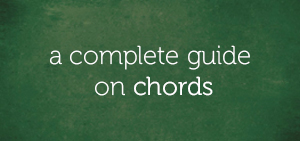In today’s lesson, we’ll be taking a look at eight activities that can help in musician improvement.
There’s so much emphasis on practice and rehearsal as the two vital catalysts in the growth of a musician. Inasmuch as they are rewarding, there are other activities that can help any serious musician improve and we’ll be looking at eight of them.
#1 – Practice
The universal law of musician improvement states that every serious musician needs to practice. However, contrary to the popular belief that practice makes perfect I want to let you know that it is perfect practice that makes one perfect.
Perfect practice involves practicing the right things and practicing them the right way.
In music, there are a variety of styles and levels. The material that’s right for a jazz musician may not be totally needful for a rock musician. The material for an advanced player will end up confusing a beginner, who should be on the basics.
Therefore it is important for a musician to be find the right resources. The style and level of a resource are two things to put into consideration before you go ahead to study its content.
#2 – Rehearsal
Although the term “rehearsal” is synonymous with practice, rehearsal involves repetition. No matter how difficult an idea (be it a scale, chord, or chord-progression) is, you get to master it the more you rehearse it.
Believe it or not, repetition is the mother of mastery, and that’s the goal of a rehearsal session.
The relationship between practice and rehearsal is that after the practicing an idea, it can be rehearsed subsequently for mastery.
#3 – Aural Training/Test
Music is to the ears what colors are to the eyes
Every musician who desires to take his musicianship to the next level must undergo aural training (aka – “ear-training”.) The ability to recognize notes, scales, intervals, chords, and chord-progressions by ear is invaluable.
Aural training helps a musician to “visualize” musical ideas when they are played. You can develop the ability to distinguish the third and the sixth tone of the scale, to say exactly the quality of a chord (whether major or minor), and to recognize the chord progression used in any song via aural training.
Believe it or not, the aural training is one activity that all musicians who play by the ear shouldn’t joke with.
Aural training should be accompanied with aural tests on the following:
- Note recognition
- Scale recognition
- Interval recognition
- Chord recognition
- Chord progression recognition
…to help you monitor progress.
There are several approaches to aural training and time will fail me to go into all of them. You can either check out for aural training courses online/offline or get a friend to play notes (scales, intervals, chords, or chord progressions) on the keyboard while you determine the notes played by ear.
#4 – Chord Formation/Voicing
The primary goal of a pianist in a band is to provide harmonic accompaniment (support other instruments with chords.)
A versatile pianist must learn various classes and widths of chords and also have a knowledge of the appropriate situation where they are applied.
In addition to that is a knowledge of various voice leading and voicing concepts ranging from A & B voicing technique, to the part-over-root voicing technique, rootless voicing technique, etc.
#5 – Technical Exercises
The technical and mechanical difficulty of playing musical instruments cannot be denied. Playing the keyboard can be challenging to the beginner and that underscores the importance of technical exercises.
The goal of these exercises is to foster dexterity, finger independence, agility, balance, speed, precision, etc. There are several technical exercises that enhance these techniques. The Virtuoso Pianist In 60 Exercises is one technical exercise that has helped several musicians over the years.
You’ll do well to check out this video course on one-sixth of hanon exercises.
#6 – Investigation
Every serious musician must have an insatiable passion to learn more. It is important to follow up any new concept learned with research.
Knowledge is infinitesimal. However, while learning new concepts, it is important to back them up with research. Research creates a forum for the musician to learn much more and also ascertain the authenticity of what is learned.
#7 – Cogitation
As musicians involved in the creative arts, we expose our minds to several bodies of knowledge. To aid the digestion of what is learned, it is important for every serious musician to take out time to turn inwards and meditate on what is learned.
Cogitation here refers to a conscious meditation of what is learned, with the goal of internalizing it.
#8 – Examination
Every musician must find time to do self-evaluation periodically.
The importance of this self-evaluation cannot be over-emphasized because beyond letting you know the progress made, it also exposes certain areas of weakness that should be worked on.
Occasionally, it’s necessary to meet other musicians we respect for examination and constructive criticism.
Final Words
Here are all the eight activities we covered in this lesson:
- Practice
- Rehearsal
- Aural Test
- Chord Formation/Voicing
- Technical Exercises
- Investigation
- Cogitation
- Examination
…and guess what it spells…PRACTICE!
I’ll see you in the next lesson.
Chuku Onyemachi
Latest posts by Chuku Onyemachi (see all)
- CHORD UPGRADE: How To INSTANTLY Upgrade Triads And Seventh Chords To Ninth Chords
- The Formation Of Diminished Seventh Chords Used To Be Challenging Until I Did This
- How To Form Seventh Chords In Two Shakes Of A Dog’s Tail Using Third Intervals And The Circle Of Fifths Chart
- I Played The 13sus4 Chord And This Happened…
- How To Build Seventh Chords Like An Architect Using “Foundation And Structure” Concept







Comments on this entry are closed.